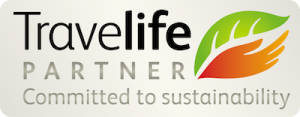Responsible Travel
COOPERATION WITH LOCAL PEOPLE / COMMUNITY-BASED TOURISM
Whenever possible, we like to give preference to community-based lodges and/or other forms of community-based tourism. Of course, it goes without saying that if the clients prefer luxury then we try to provide a 3 or 2 star accommodation if available in that area. However, there are many beautiful regions in India that are so remote and ‘undeveloped’ that there might be only one government lodge or CBT accommodation available. In such a case, we are left with no option. We always try to hire local ‘staff’ locally, even if their quality is not (yet) very good, and even if it means we have to invest in the training of these people (in Northeast India in many places the case). For instance, on tours through the ‘tribal’ areas of Arunachal Pradesh and Nagaland our guests are accompanied by a good ‘general’ local guide, but we regularly hire an additional local guide at small village that we visit. One reason for this is that the area has a huge variety of cultures and languages, and someone from Guwahati does not necessarily understand the language and culture of a remote village near the Tibetan border. Just as important, we feel, is that revenues are generated for these small villages, even though our clients don’t sleep there.
ENVIRONMENTAL POLICY
TRANSPORTATION / CO2 EMISSIONS
The tourism industry, apart from its sustainable part, is, because of its large share in the world economy, by definition, one of the main causes of these problems. Therefore, we advise our clients
 to compensate their flight emissions. This can be done via GreenSeat.
to compensate their flight emissions. This can be done via GreenSeat. WHAT WE DO
- All domestic flights are compensated (if this option is available), regardless of whether the customer asks for it.
- Efficient use of local transport:
- Shortest, most efficient routes always prevail. We don’t like to send our clients on a long day’s drive to a nice place and have them come back the next day.
- No unnecessary kilometers driven for a can of Coke for a customer or tobacco for a driver.
- Basically three people per jeep (no jeeps with 1 person). In Bhutan, we use buses for groups of 7 people and more (less polluting).
- To the extent possible, we ensure proper maintenance of the jeeps and buses that we rent (much air pollution in India is caused by poorly maintained engines); smoke-belching jeeps are not accepted.
- CO2 emissions from accommodations are often linked to forms of unnecessary luxury such as lavish lighting, unnecessary use of air conditioning and purchasing products from outside the region (transport). We pay attention to these things when choosing accommodations.
- We give advice to property owners on waste separation and incineration (smoldering fires and attempts to combustion of hard plastics cause the most pollution, including toxic dioxin).
- We advice accommodation holders to use propellant-free refrigerators (not yet standard in India).
ACCOMMODATIONS
ACTIVITIES (EXCURSIONS, HIKES)
- Purified or boiled water, or springwater where available is always preferred over bottled water. Customer are informed on this and asked to cooperate.
- On treks we basically never use bottled water.
- Plastic bottles of mineral water provided on jeep tours are never left behind en route in small places (not even in rubbish bins or in hotels), but taken to the end of the trip and recycled there if possible (NE India, Sikkim and Bhutan) or disposed of at a central garbage dump (landfill) (Ladakh and HP).
- On hikes and treks no waste is left other than organic material (90% of which is consumed by the packhorses if they are there, otherwise buried).
- On treks we cook with natural gas or paraffin oil (it is called kerosene in India), never on a wood fire; we try to apply this also to cooking for / by porters (treks in Nepal, winter treks in Ladakh) but this remains difficult. On 90% of our treks pack horse are used.
- On treks we maintain strict rules to prevent contamination of streams.
- Where overgrazing by pack horses is a problem (like the Markha Valley in Ladakh), we try to adjust the halting places and/or buy horse fodder in advance.
- See below under CO2 emissions.
WATER
Unfortunately, the biggest problem lies often in the range of facilities. The ‘modern’ Ladakhi accommodations, for example, give the impression that there is no water problem because most accommodations use deep bore wells that produce an impressive amount of water. However, the rapid depletion of aquifers under Leh caused by this is a predictable time bomb that is going to hit locals and the tourist industry hard.
SUPPORTING LOCAL INITIATIVES
NATURE TRAVEL AND VISITING NATURE RESERVES
Education and awareness are considered important elements of true eco-tourism these days. On all tours with an emphasis on wildlife or nature conservation with more than 4 participants additional lectures will be given by JTT staff and/or local specialists on conservation issues and in particular the relationship between nature conservation and socio-economic problems in the area concerned.
SOCIAL ASPECTS
We do not have permanent staff, all our staff are either self-employed/ freelancer or working for another company. Still, we do try to provide the best possible working conditions for the people who work for us, at least by local standards. We do this by paying attention to the following:
- Reasonable compensation. We pay a guide, horseman, cook or driver according to local rates (at the very least at an intermediate level), we inform our customers about this and advise them to tip accordingly (in India an essential part of the ‘wages’). Travelling time to reach the customer (hotel, trekking point) and periods in between jobs that are too short to go home is paid for.
- While, for example, insurance for horsemen and guides in remote areas does not exist, we try to aid as well as possible when (professional) accidents occur. These can be physical injury, the loss of a packhorse or (uninsured) damage to the car of an independent driver.
- We do not cancel guesthouses or hotels at a late stage, and if that happens nonetheless, the hotel owner has a right to full (3 days in advance) or partial compensation (one week in advance 75%, etc.). But most accommodation providers have themselves nowadays pretty well hedged against cancellation already. Some demand a non-refundable deposit of 50%.
ECOLABELS
 more than 100 criteria related to sustainability management, office operations, working with suppliers and customer communication. We are working towards further improvements aiming to eventually reach the Travelife Certified stage by 2022.
more than 100 criteria related to sustainability management, office operations, working with suppliers and customer communication. We are working towards further improvements aiming to eventually reach the Travelife Certified stage by 2022. 